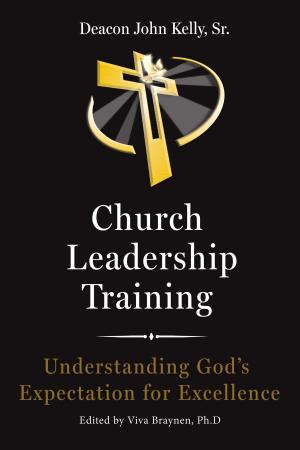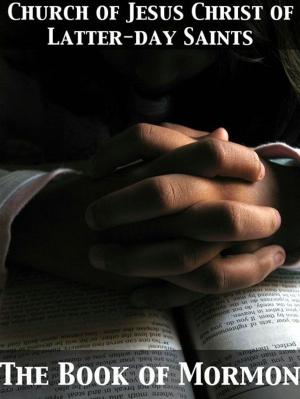| Author: | John M. Hancock | ISBN: | 9781310202148 |
| Publisher: | John M. Hancock | Publication: | March 1, 2014 |
| Imprint: | Smashwords Edition | Language: | English |
| Author: | John M. Hancock |
| ISBN: | 9781310202148 |
| Publisher: | John M. Hancock |
| Publication: | March 1, 2014 |
| Imprint: | Smashwords Edition |
| Language: | English |
Why have the churches been unable to make sense of Jesus to the population? This is not the same as getting people into places of worship. Sometimes more people did come to church. Adults had nothing more interesting to do. The children came to Sunday school. Times changed. Quickly it became clear that people had better alternatives. Sunday Schools and church going have made no important differences to them. Jesus remains at a distance, making no sense and irrelevant. There were growing pressures as the cost of church buildings rose and salaries increased. It was urgent to get people into church in the hope they could be persuaded to part with some of their cash. So church leaders and congregations tried new things. There were big rallies and major events with popular speakers. The services changed, even the language and music changed a little. But there were few long lasting results. Any strategy that is not driven by the need to increase the membership and income gets scant consideration. However, serious barriers remained. Those who went to church often struggled to explain to others what church was all about. Children were growing up with no contact with church and going to church was not 'cool' except for a few elderly folk and 'fanatics'. There are other barriers, some of the church's own making. Staff and clergy must be paid and church buildings that need to be maintained. The emphasis is on 'getting people to come to church' to boost the income. In this attempt, the gospel is sometimes diluted or other important concerns are allowed to take a higher priority. We do what it takes to win votes. Yet if anyone does venture into the church building, very often they have to come on the terms set by the church. One size is expected to fit all. That means one type of service, one sort of language, one style of music, one way of communicating and one way only of doing things. It is no surprise that only the needs of a very few are met. Once in, all kinds of assumptions are then made. "Everyone of course 'believes' everything their grandparents 'believed' and they understand the language and teaching of the church." They do not. It is not good enough to tell others to 'just believe'. It is assumed that people know that Jesus actually lived; that He is not like Santa and that the New Testament gospels are reliable. All this contradicts so much that is heard and accepted without question in the media and elsewhere. So many churchgoers do not know how to correct these mistaken ideas. Nor can churchgoers explain to others the language activity in worship services. They do not find it easy to come to terms with the reality that they themselves have never understood or when they discover that for so long they have been mistaken.
Can the widening gulf between most people and Jesus be bridged? I am absolutely certain that it can. We must look again at the strategy of Jesus and the early church and learn from the evidence in the past and now, when we find people are discovering that Jesus can make sense.
Throughout this book, there are hints of the way ahead for the church. In chapter six I discuss this way ahead. This route is not a blue print but I hope the basis for urgent debate, thought, prayer and action. I am not suggesting that church going is out of date or irrelevant. The vital component seen in the early church and today, compliments church worship and its life. It is not an alternative or a threat. The two belong together. When either is neglected then the whole church suffers. Is it possible that we will be enabled to see that a very important ingredient is missing and that without it the gulfs between most people and Jesus will grow even wider?
Why have the churches been unable to make sense of Jesus to the population? This is not the same as getting people into places of worship. Sometimes more people did come to church. Adults had nothing more interesting to do. The children came to Sunday school. Times changed. Quickly it became clear that people had better alternatives. Sunday Schools and church going have made no important differences to them. Jesus remains at a distance, making no sense and irrelevant. There were growing pressures as the cost of church buildings rose and salaries increased. It was urgent to get people into church in the hope they could be persuaded to part with some of their cash. So church leaders and congregations tried new things. There were big rallies and major events with popular speakers. The services changed, even the language and music changed a little. But there were few long lasting results. Any strategy that is not driven by the need to increase the membership and income gets scant consideration. However, serious barriers remained. Those who went to church often struggled to explain to others what church was all about. Children were growing up with no contact with church and going to church was not 'cool' except for a few elderly folk and 'fanatics'. There are other barriers, some of the church's own making. Staff and clergy must be paid and church buildings that need to be maintained. The emphasis is on 'getting people to come to church' to boost the income. In this attempt, the gospel is sometimes diluted or other important concerns are allowed to take a higher priority. We do what it takes to win votes. Yet if anyone does venture into the church building, very often they have to come on the terms set by the church. One size is expected to fit all. That means one type of service, one sort of language, one style of music, one way of communicating and one way only of doing things. It is no surprise that only the needs of a very few are met. Once in, all kinds of assumptions are then made. "Everyone of course 'believes' everything their grandparents 'believed' and they understand the language and teaching of the church." They do not. It is not good enough to tell others to 'just believe'. It is assumed that people know that Jesus actually lived; that He is not like Santa and that the New Testament gospels are reliable. All this contradicts so much that is heard and accepted without question in the media and elsewhere. So many churchgoers do not know how to correct these mistaken ideas. Nor can churchgoers explain to others the language activity in worship services. They do not find it easy to come to terms with the reality that they themselves have never understood or when they discover that for so long they have been mistaken.
Can the widening gulf between most people and Jesus be bridged? I am absolutely certain that it can. We must look again at the strategy of Jesus and the early church and learn from the evidence in the past and now, when we find people are discovering that Jesus can make sense.
Throughout this book, there are hints of the way ahead for the church. In chapter six I discuss this way ahead. This route is not a blue print but I hope the basis for urgent debate, thought, prayer and action. I am not suggesting that church going is out of date or irrelevant. The vital component seen in the early church and today, compliments church worship and its life. It is not an alternative or a threat. The two belong together. When either is neglected then the whole church suffers. Is it possible that we will be enabled to see that a very important ingredient is missing and that without it the gulfs between most people and Jesus will grow even wider?















